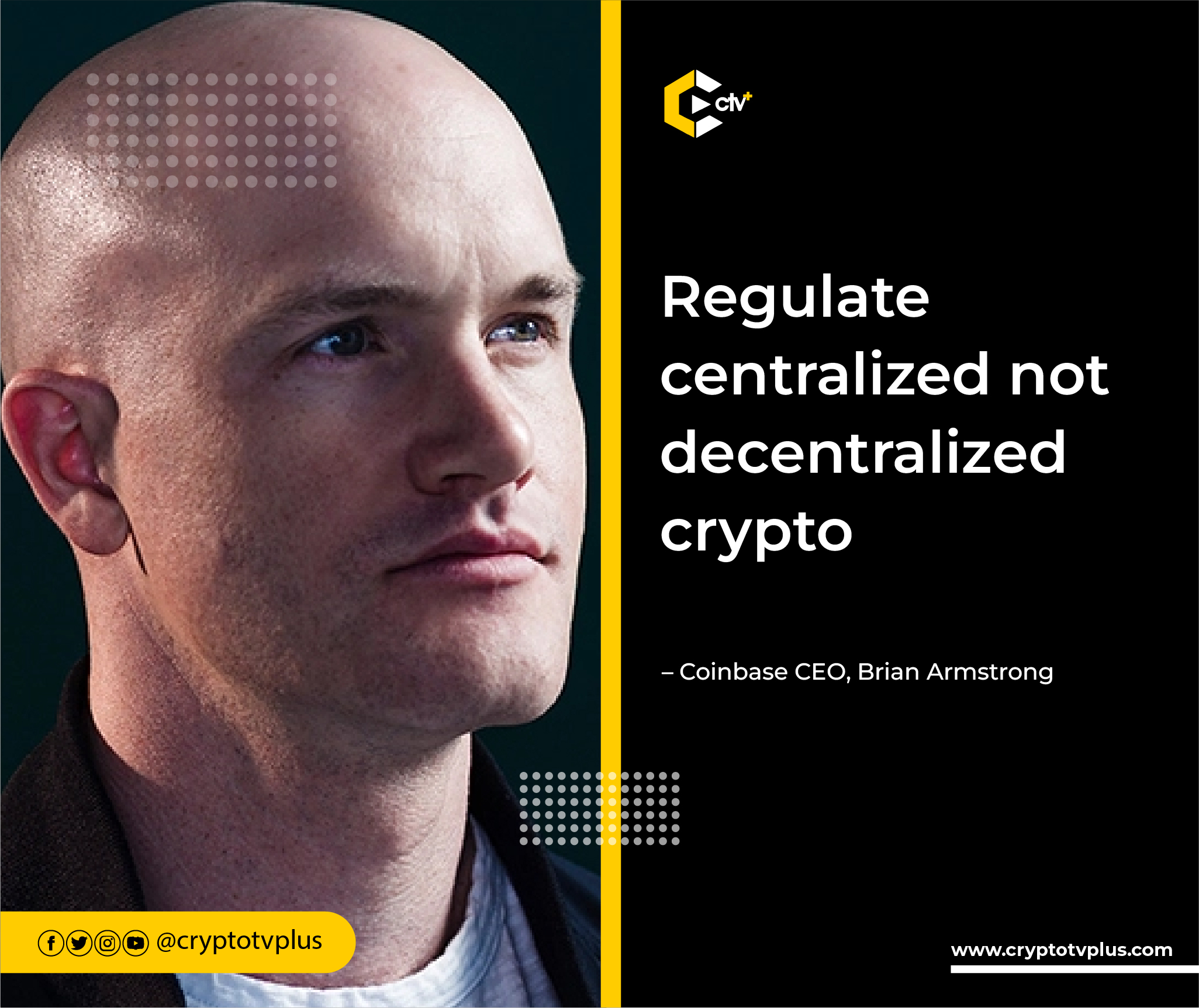News
Regulate centralized, not decentralized crypto – Coinbase CEO

After a wild crypto year full of many dramas that have caused Fear, Uncertainty, and Doubt, questions being asked in the crypto space include: Are decentralized platforms better than centralized platforms?
Should the two versions of crypto products be regulated? If not, how do we assure users of security? If yes, what modalities will be used to regulate each side without losing one of the essence of what crypto is about – decentralization?
Brian Armstrong, Chief Executive Officer and Co-founder of Coinbase explained in a post that to make the crypto industry more useful and better for everyone, there’s a need to create regulations for centralized entities, develop and implement laws that protect users, and allow decentralization to evolve.
Regulations are important
The CEO noted that centralized actors in crypto, such as issuers of stablecoins, exchanges, and custodians, need to operate based on regulations set by the government. “Because this is where we’ve seen the most risk of consumer harm, and pretty much everyone can agree it should be done,” he added.
He suggested that while it’s not important for a bank to issue stablecoins, issuers should undergo regular audits, have good cybersecurity infrastructures, and be registered under the government.
For exchanges and custodian platforms, he said there should be minimum standards implemented for the safety of users’ assets, structures to prevent market manipulation, and KYC and AML implementation. At the same time, the government can work on differentiating between securities and commodities.
Protect users with laws
Speaking about protecting users, Brian said that having a leveled playing ground for organizations in the crypto space is important. This means that when laws are passed in a nation or region, they should affect every crypto product that users of that nation are part of.
This, he said, will help protect citizens of the country from attacks or bad actors in the industry. He cited an example with the FTX case saying that FTX used FTX.US as a distraction while serving users, including US citizens, in illegal manners, which has exploded.
Decentralization should not be regulated
“Let innovation happen in decentralized crypto,” Brian said. While centralized systems should have regulations created by the government that controls how they function, decentralized platforms shouldn’t.
Brian believes that adding multiparty computation and social recovery technology can make self-custody wallets safer for users. He added that smart contracts that run DeFi and dApps had shown a high level of transparency compared with traditional systems.
“As we get more organizations to be built “on-chain” using DAOs and smart contracts, we’ll see the emergence of on-chain accounting,” the co-founder wrote.
In general, he highlighted that the future of the crypto industry would need regulations that are focused on centralized projects, and the government can play a major role here. However, the role of regulation with decentralized projects will be different as there is an in-built system of safety and transparency in the architecture of decentralized products.
Read also;
Coinbase asks users to switch from USDT to USDC at zero fees
Coinbase launches new asset recovery tool for ERC-20 tokens
Crypto Regulation: Basel Committee Approves International Crypto Banking for 2025

























Pingback: Regulate centralized, not decentralized crypto – Coinbase CEO by Chuks Nnabuenyi Jr – CryptoTvplus Events: NFT, DeFi, Bitcoin, Ethereum, Altcoin Events